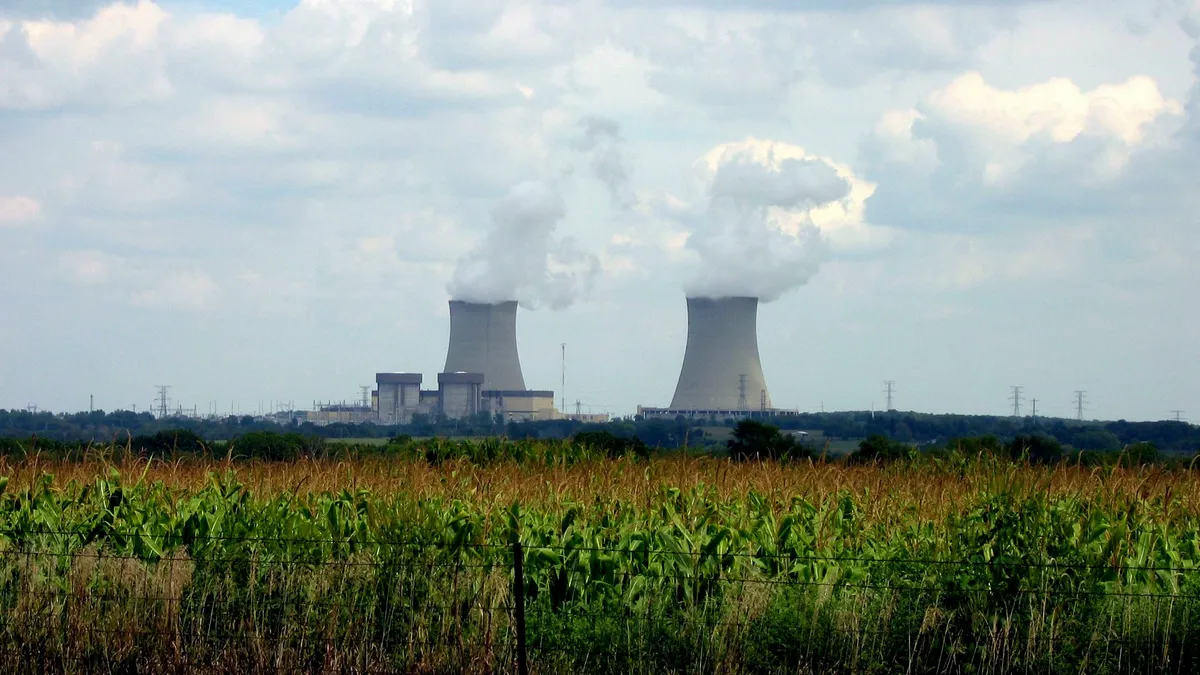Dive Brief:
- Exelon said Tuesday that ongoing investigations of its lobbying activities in Illinois could subject it and Commonwealth Edison to civil or criminal penalties, sanctions or other remedial measures.
- The company has been under investigation by the U.S. Attorney's Office and the Securities and Exchange Commission and is subject to two grand jury subpoenas. Exelon raised the potential for penalties from the investigations for the first time in its latest 10-K annual report, Marketwatch reported.
- Exelon CEO Chris Crane said during an earnings call with analysts on Tuesday that the company's "board [has] appointed a special committee to provide oversight of the investigation led by outside counsels to determine if any changes are needed to ensure that going forward we operate at the highest possible standards."
Dive Insight:
"The appearance of non-compliance with anti-corruption and anti-bribery laws, could have an adverse impact on Exelon’s and ComEd's reputation or relationship with regulatory and legislative authorities, customers and other stakeholders, as well as their consolidated financial statements," Exelon said in its 10-K released Feb. 11.
During Tuesday's earnings call, Crane did not reveal more than what he's previously said about the investigations.
"As we said before, we are limited in what we can share about the investigation. However, I want to reiterate that we are fully cooperating with the U.S. Attorney's Office and taking the situation very seriously," he said.
Exelon declined to specify what prompted the disclosure of potential civil and criminal penalties in its 10-K filing when such language did not appear in its 10-Q report for Q3 2019.
"SEC-registered companies are required to include a complete set of risk factors in their annual report on Form 10-K. Interim updates are made when necessary in quarterly reports on Form 10-Qs. This is why the new risk factor appears in our Form 10-K," an Exelon spokesperson told Utility Dive via email.
"Exelon's Form 10-K contains over 30 specific and detailed risk factors which could have a material adverse effect on Exelon, such as cybersecurity breaches or acts of terrorism," she continued.
While the annual report raises the possibility of civil or criminal penalties, it also notes that "no loss contingency has been reflected in Exelon's and ComEd's consolidated financial statements as this contingency is neither probable nor reasonably estimable at this time. Management is currently unable to estimate a range of reasonably possible loss as these matters are subject to change."
In addition to the investigations launched in 2019 by the SEC and U.S. Attorney's Office in Northern Illinois, a related class action lawsuit has been filed against the company as well as certain officers of Exelon and ComEd.
The company said it "does not believe that the lawsuit will have a material adverse impact on Exelon’s or ComEd’s consolidated financial statements."
Amid the potential for sanctions against the company, Crane presented an optimistic picture during the earnings call, noting that in 2019 its nuclear fleet had its highest capacity factor ever, at 95.7%, and its utility subsidiaries had their highest scores ever for customer satisfaction.
"Since 2016, we have deployed nearly $22 billion across the utilities and plan to invest $26 billion over the next four years" to improve system reliability and customer service, he noted.
The company reported Q4 2019 operating revenue of $8.34 billion, down from $8.81 billion in Q4 2018. But operating expenses also declined, going from $8.11 billion in Q4 2018 to $7.39 billion in Q4 2019, leading to an increase in adjusted earnings of $0.83/share in Q4 2019 up from $0.58/share in Q4 2018.
Illinois legislators are considering multiple clean energy bills and Exelon, during the earnings call, focused on the Clean Energy Progress Act. Introduced last March, it establishes a goal of achieving 100% carbon-free power in ComEd's service territory by 2032, among other steps.
"I think you should expect to see further discussion and public hearings about what the bill should look like. As you know there are a number of proposals that are alive in the legislature in Springfield and so there needs to be some discussion in public hearings of how the state's policy on all the issues that are pending will come together in a comprehensive approach," Kathleen Barron, Exelon's senior vice president of federal regulatory affairs and wholesale market policy, said during the earnings call.
"As you know, in most legislatures, it usually takes until closer to the end of the session for all the details to be worked out, but I think you'll start to see over the coming weeks and months more detail emerge," she continued.
Environmental and other advocacy groups are pushing a broader proposal, the Clean Energy Jobs Act, which aims for 100% clean energy in the state by 2050.
Jack Darin, director of the Sierra Club's Illinois Chapter, told Utility Dive "it has long been an assumption in Illinois politics that energy bills are built around utility business interests. That balance has shifted over the last decade as support for clean energy and climate action has grown."
Referring to the ongoing investigation of Exelon, he said, it's "alarming and definitely changes the balance of power, but another gamechanger is the strong support for action on climate change among voters and especially candidates elected in 2018."














